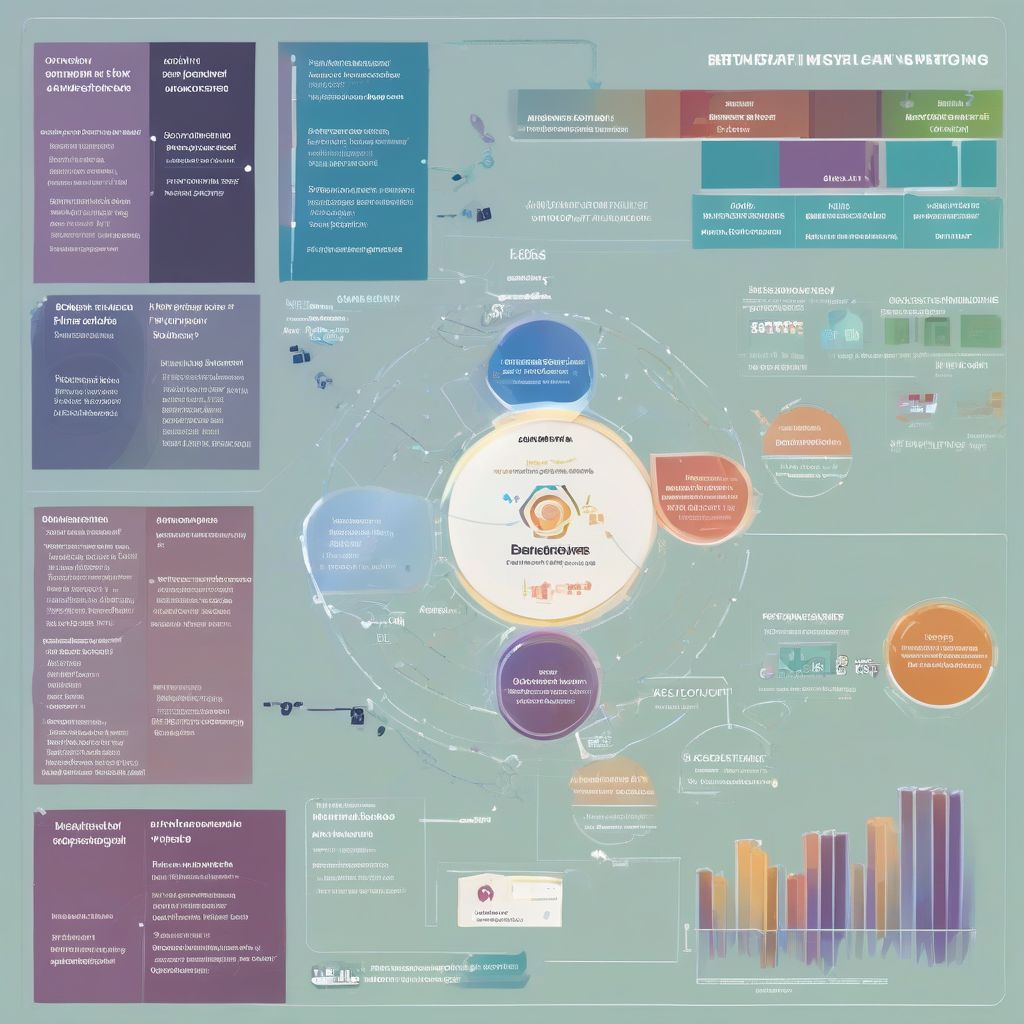Imagine this: you’ve poured your heart and soul into building a fantastic product, secured some early adopters, and now you’re dreaming big. You’re ready to scale your startup and share your creation with the world. But there’s a catch – how do you navigate the choppy waters of growth without getting lost at sea?
This is where the magic of data analytics comes in. It’s not just a buzzword; it’s the compass and map that can guide your startup towards sustainable growth. By harnessing the power of data, you can make informed decisions, optimize your strategies, and ultimately, reach new heights.
Why Data Analytics Matters for Scaling Your Startup
In the early stages, intuition and quick experiments might suffice. But as you scale, relying solely on gut feeling can be like navigating blindfolded. Data analytics provides the clarity and insights you need to make strategic decisions and avoid costly mistakes.
Here’s how data analytics can become your secret weapon for scaling your startup:
1. Understanding Your Customers Like Never Before
Data analytics helps you peel back the layers and understand your customer base at a granular level. Who are your ideal customers? What are their pain points? What are their preferences and purchasing behaviors? By analyzing customer data, you can:
- Identify your target audience: Go beyond basic demographics and uncover valuable insights about your customer segments. This enables you to tailor your marketing efforts, personalize your messaging, and reach the right people with the right message at the right time.
- Refine your product roadmap: Data analytics can reveal what features your customers love, what they struggle with, and what they wish your product could do. These insights are invaluable for prioritizing product development efforts and building a product that truly resonates with your target market.
2. Optimizing Marketing Spend for Maximum Impact
Marketing can feel like throwing spaghetti at the wall and seeing what sticks, especially with a limited budget. Data analytics helps you make every dollar count by:
- Measuring marketing ROI: Track the performance of your marketing campaigns across different channels and identify what’s working and what’s not. This allows you to optimize your spending, ditch ineffective strategies, and double down on the tactics that deliver the best results.
- Personalizing the customer journey: Leverage data to create personalized marketing experiences that resonate with individual customers. This could involve segmenting your email list, tailoring website content, or offering targeted promotions based on user behavior and preferences.
3. Streamlining Operations for Efficiency and Growth
As your startup expands, so do your operations. Data analytics can help you streamline processes, improve efficiency, and manage resources effectively.
- Inventory management: Data analysis can forecast demand, optimize inventory levels, and minimize waste. This ensures you have the right products in stock at the right time, preventing stockouts and keeping your customers happy.
- Pricing strategy: Data can inform your pricing strategy by analyzing competitor pricing, understanding price sensitivity, and identifying opportunities for revenue growth.
 Data Analytics for Startups
Data Analytics for Startups
4. Making Data-Driven Decisions for Confident Growth
Perhaps the most significant benefit of data analytics is its ability to empower you with information. Armed with data-driven insights, you can move forward with confidence, knowing that your decisions are based on evidence, not assumptions.
How to Get Started with Data Analytics
You might be thinking, “This all sounds great, but isn’t data analytics complicated and expensive?” While it’s true that setting up a robust data analytics infrastructure can be an investment, there are plenty of affordable tools and resources available to get you started.
Here’s a simplified roadmap to incorporating data analytics into your startup’s growth strategy:
- Define your goals: What are you hoping to achieve with data analytics? Are you looking to improve customer retention, increase sales conversions, or streamline your operations? Clearly defined goals will guide your data collection and analysis efforts.
- Choose the right tools: There’s a wide range of data analytics tools available, from free and open-source options to more sophisticated paid platforms. Select the tools that align with your budget, technical expertise, and specific needs.
- Collect relevant data: Start gathering data from various sources, such as your website, social media platforms, marketing automation tools, and customer relationship management (CRM) system.
- Analyze and visualize your data: Once you have data flowing in, use your chosen tools to analyze the data and look for patterns, trends, and insights. Data visualization tools can make complex data more digestible and actionable.
- Turn insights into action: The most crucial step is to translate your data-driven insights into concrete actions. Use your findings to inform your marketing campaigns, product development roadmap, customer service strategies, and overall business decisions.
Data Analytics: The Fuel for Your Startup’s Growth Engine
In the competitive landscape of startups, data analytics is no longer a luxury—it’s a necessity. By embracing a data-driven approach, you can gain a competitive edge, make informed decisions, and unlock new opportunities for growth.
Remember, data analytics is not just about collecting numbers; it’s about uncovering the story behind the numbers and using those insights to drive your startup toward success.
Ready to Scale Your Business?
Understanding how to effectively scale your business is crucial for long-term success. If you’re looking for practical tips and strategies to take your startup to the next level, check out our article on How to Scale Your Tech Startup Effectively.
[amazon bestseller=”business analytics”]
